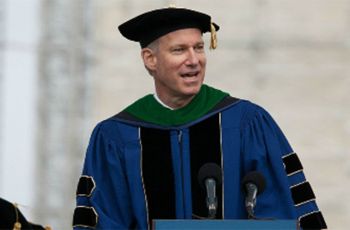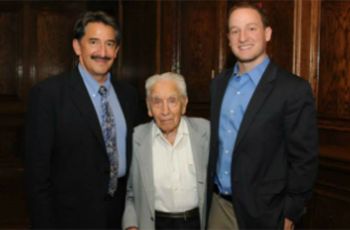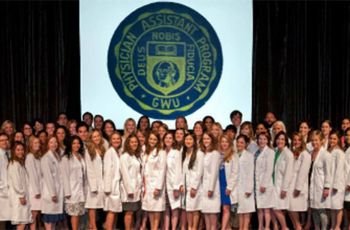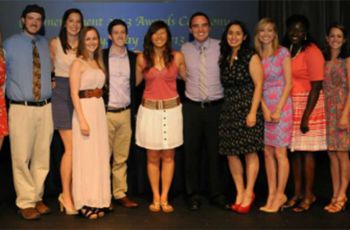News Archive
James Simon, M.D., clinical professor of obstetrics and gynecology, was a guest on Lifetime's The Balancing Act to talk about factors to support a healthy reproductive cycle. Simon recommends women who are trying to conceive should maintain a healthy body weight, eat well, and exercise.
The sounds of bagpipes echoed throughout Lisner Auditorium as the George Washington University School of Medicine and Health Sciences (SMHS) M.D. diploma ceremony commenced, May 19.
Health Sciences graduation ceremony was held May 18 in Lisner Auditorium.
At the 2013 graduation ceremonies, three generations of GW physicians came together.
Jesse Pines, M.D., associate professor of emergency medicine, was interviewed by Bloomberg about a rise in emergency room (ER) visits, even as many ERs and hospitals are closing due to compensation issues.
Cathleen Clancy, M.D., associate professor of emergency medicine, appeared on NBC affiliate stations nationwide talking about the lethal affects of the poison ricin.
The George Washington University School of Medicine and Health Sciences (SMHS), Physician Assistant graduates received their long white coats during a ceremony May 17.
The M.D. Class of 2013 donned their finest attire and headed out to the Fairmont hotel for an evening of recognition and fun, May 17.
Stephan Ladisch, M.D., professor of pediatrics and professor of biochemistry and molecular biology, was featured in Medical Xpress for recently published research in the American Society of Hematology journal, Blood.
The 33 students who make up the George Washington University School of Medicine and Health Sciences (SMHS) Class of 2013 Doctor of Physical Therapy (DPT) program, gathered in the Dorothy Betts Marvin Theatre to celebrate their accomplishments and recognize the program’s highest achievers during…









